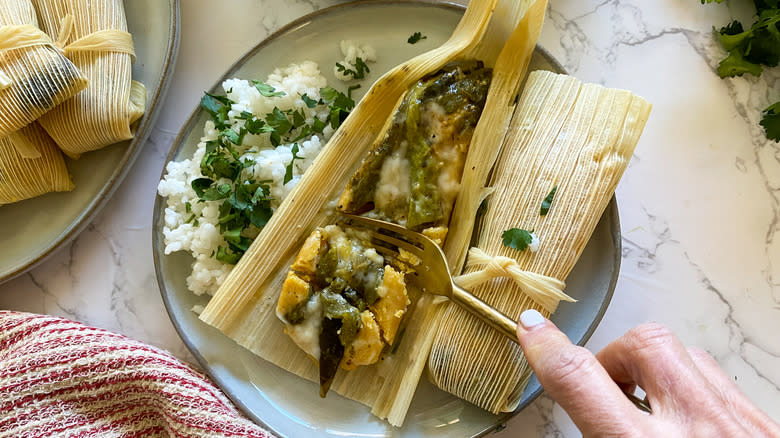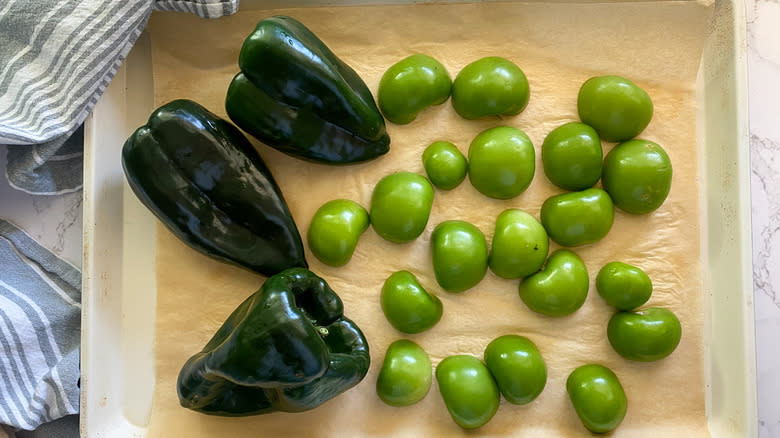Why You Should Soak Tomatillos Before Making Tamales De Rajas

In Mexico, rajas con queso, or chilies and cheese, are among the most popular and common types of tamales sold by street vendors and prepared by families for Christmas celebrations. These vegetarian corn masa tamales are stuffed with strips of roasted peppers and a melty white cheese like Oaxaca or panela, wrapped in corn husks to accentuate the savory flavor of the nixtamalized masa. Tasting Table recipe developer Miriam Hahn upgrades a traditional tamal de rajas recipe by adding yet another Mexican native ingredient: Tomatillos.
While incorporating this tart and delicious fruit into a tamale is easy enough, soaking them should be the first step in their preparation. Meaning "little tomato" in Spanish, tomatillos may appear to be smaller versions of the green tomatoes you'll see in Southern cuisine, but they are a completely different species. Tomatillos are smaller, harder, denser, and much sourer than green tomatoes. Another key difference is that they come wrapped in husks. These husks adhere to the skin of the tomatillo through a sticky, sappy substance that also traps dirt and dust as they grow on the vine.
Soaking the tomatillos will facilitate the removal of the husk and the sticky substance while also ridding the tomatillos of any residual dirt or grit. They only need to soak for a few minutes in hot water to loosen the husks and disintegrate the sticky residue. For good measure, run them under cool water to shed any stubborn pieces of grit.
Read more: 30 Healthy Snack Ideas That Won't Ruin Your Diet
Ways To Amp Up Tomatillos And Tamale Tips

Prized for their tart flavor and dense texture, tomatillos are a star ingredient in salsa verde. Since they pair well with green peppers in a typical salsa verde recipe, they will undoubtedly bring a tangy complement to spicy rajas and savory cheese. To develop their flavor even further, you can roast them. Mexican cooking methods employ a stove-top technique for roasting veggies that you can use for both tomatillos and peppers.
If you don't have a comal, you can place both the chili peppers and the tomatillos on a hot griddle, flipping them every so often to create an even char. Charring the skin over high heat effectively cooks the insides of tomatillos, instilling caramelized notes and mellowing their tartness. Roasted tomatillos make for a richer complement to the roasted peppers and salty cheese.
Tomatillos aren't the only ingredient that benefits from soaking; corn husks also need at least an hour of soaking to become malleable steaming pouches for the corn masa. Another tip to ensure a fluffy and moist corn masa shell is to knead the masa flour with ice cubes as well as water. When the tamales are finished steaming, turn off the stove and let them rest inside the steamer with the top on for another five minutes to let all the leftover steam infiltrate the masa with moisture.
Read the original article on Tasting Table.